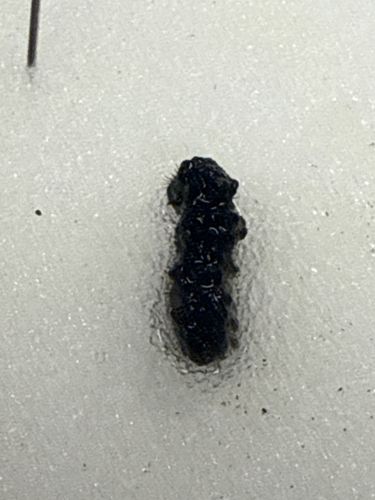Larder Beetle Larva (possibly)
Scientific Name: Dermestes lardarius (possibly, based on appearance)
Order & Family: Coleoptera, Dermestidae
Size: Larvae typically 10-17 mm (0.4-0.7 inches) when fully grown.

Natural Habitat
Found in stored food products, pantries, pet food, taxidermy, insect collections, and sometimes in attics or wall voids where dead animals are present.
Diet & Feeding
Omnivorous scavengers; larvae feed on high-protein materials such as dried meat, cheese, pet food, furs, hides, feathers, and dead insects.
Behavior Patterns
Larvae are covered in bristles and have two prominent spines (urogomphi) on the last segment. They are active feeders and, when mature, often wander in search of a pupation site, sometimes boring into hard materials like wood or insulation.
Risks & Benefits
Potential risks include damage to stored food products, textiles, and insect collections. They can be a nuisance pest in homes. Generally, they do not bite humans. In nature, they play a beneficial role as decomposers, helping to break down animal carcasses.
Identified on: 10/3/2025